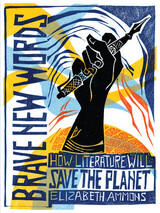
The activist tradition in American literature has long testified to the power of words to change people and the power of people to change the world, yet in recent years many professional humanists have chosen to distract themselves with a postmodern fundamentalism of indeterminacy and instability rather than engage with social and political issues. Throughout her bold and provocative call to action, Elizabeth Ammons argues that the responsibility now facing humanists is urgent: inside and outside academic settings, they need to revive the liberal arts as a progressive cultural force that offers workable ideas and inspiration in the real-world struggle to achieve social and environmental justice.
Brave New Words challenges present and future literary scholars and teachers to look beyond mere literary critique toward the concrete issue of social change and how to achieve it. Calling for a profound realignment of thought and spirit in the service of positive social change, Ammons argues for the continued importance of multiculturalism in the twenty-first century despite attacks on the concept from both right and left. Concentrating on activist U.S. writers—from ecocritics to feminists to those dedicated to exposing race and class biases, from Jim Wallis and Cornel West to Winona LaDuke and Paula Moya and many others—she calls for all humanists to link their work to the progressive literature of the last half century, to insist on activism in the service of positive change as part of their mission, and to teach the power of hope and action to their students.
As Ammons clearly demonstrates, much of American literature was written to expose injustice and motivate readers to work for social transformation. She challenges today’s academic humanists to address the issues of hope and purpose by creating a practical activist pedagogy that gives students the knowledge to connect their theoretical learning to the outside world. By relying on the transformative power of literature and replacing nihilism and powerlessness with conviction and faith, the liberal arts can offer practical, useful inspiration to everyone seeking to create a better world.
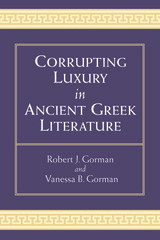
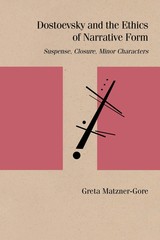
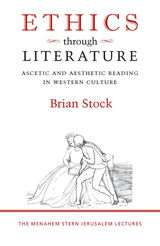
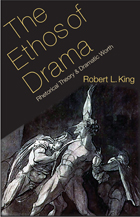
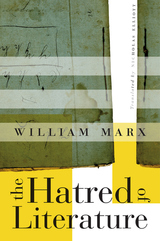
For the last 2,500 years literature has been attacked, booed, and condemned, often for the wrong reasons and occasionally for very good ones. The Hatred of Literature examines the evolving idea of literature as seen through the eyes of its adversaries: philosophers, theologians, scientists, pedagogues, and even leaders of modern liberal democracies. From Plato to C. P. Snow to Nicolas Sarkozy, literature’s haters have questioned the value of literature—its truthfulness, virtue, and usefulness—and have attempted to demonstrate its harmfulness.
Literature does not start with Homer or Gilgamesh, William Marx says, but with Plato driving the poets out of the city, like God casting Adam and Eve out of Paradise. That is its genesis. From Plato the poets learned for the first time that they served not truth but merely the Muses. It is no mere coincidence that the love of wisdom (philosophia) coincided with the hatred of poetry. Literature was born of scandal, and scandal has defined it ever since.
In the long rhetorical war against literature, Marx identifies four indictments—in the name of authority, truth, morality, and society. This typology allows him to move in an associative way through the centuries. In describing the misplaced ambitions, corruptible powers, and abysmal failures of literature, anti-literary discourses make explicit what a given society came to expect from literature. In this way, anti-literature paradoxically asserts the validity of what it wishes to deny. The only threat to literature’s continued existence, Marx writes, is not hatred but indifference.

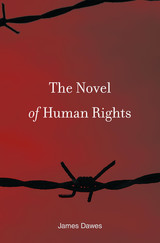
The Novel of Human Rights defines a new, dynamic American literary genre. It incorporates key debates within the contemporary human rights movement in the United States, and in turn influences the ideas and rhetoric of that discourse.
In James Dawes’s framing, the novel of human rights takes as its theme a range of atrocities at home and abroad, scrambling the distinction between human rights within and beyond national borders. Some novels critique America’s conception of human rights by pointing out U.S. exploitation of international crises. Other novels endorse an American ethos of individualism and citizenship as the best hope for global equality. Some narratives depict human rights workers as responding to an urgent ethical necessity, while others see only inefficient institutions dedicated to their own survival. Surveying the work of Chris Abani, Susan Choi, Edwidge Danticat, Dave Eggers, Nathan Englander, Francisco Goldman, Anthony Marra, and John Edgar Wideman, among others, Dawes finds traces of slave narratives, Holocaust literature, war novels, and expatriate novels, along with earlier traditions of justice writing.
The novel of human rights responds to deep forces within America’s politics, society, and culture, Dawes shows. His illuminating study clarifies many ethical dilemmas of today’s local and global politics and helps us think our way, through them, to a better future. Vibrant and modern, the human rights novel reflects our own time and aspires to shape the world we will leave for those who come after.
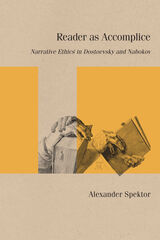
Reader as Accomplice: Narrative Ethics in Dostoevsky and Nabokov argues that Fyodor Dostoevsky and Vladimir Nabokov seek to affect the moral imagination of their readers by linking morally laden plots to the ethical questions raised by narrative fiction at the formal level. By doing so, these two authors ask us to consider and respond to the ethical demands that narrative acts of representation and interpretation place on authors and readers.
Using the lens of narrative ethics, Alexander Spektor brings to light the important, previously unexplored correspondences between Dostoevsky and Nabokov. Ultimately, he argues for a productive comparison of how each writer investigates the ethical costs of narrating oneself and others. He also explores the power dynamics between author, character, narrator, and reader. In his readings of such texts as “The Meek One” and The Idiot by Dostoevsky and Bend Sinister and Despair by Nabokov, Spektor demonstrates that these authors incite the reader’s sense of ethics by exposing the risks but also the possibilities of narrative fiction.
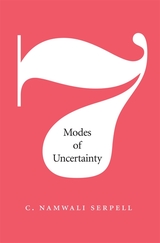
Literature is rife with uncertainty. Literature is good for us. These two ideas about reading literature are often taken for granted. But what is the relationship between literature’s capacity to unsettle, perplex, and bewilder us, and literature’s ethical value? To revive this question, C. Namwali Serpell proposes a return to William Empson’s groundbreaking work, Seven Types of Ambiguity (1930), which contends that literary uncertainty is crucial to ethics because it pushes us beyond the limits of our own experience.
Taking as case studies experimental novels by Thomas Pynchon, Toni Morrison, Bret Easton Ellis, Ian McEwan, Elliot Perlman, Tom McCarthy, and Jonathan Safran Foer, Serpell suggests that literary uncertainty emerges from the reader’s shifting responses to structures of conflicting information. A number of these novels employ a structure of mutual exclusion, which presents opposed explanations for the same events. Some use a structure of multiplicity, which presents different perspectives regarding events or characters. The structure of repetition in other texts destabilizes the continuity of events and frustrates our ability to follow the story.
To explain how these structures produce uncertainty, Serpell borrows from cognitive psychology the concept of affordance, which describes an object’s or environment’s potential uses. Moving through these narrative structures affords various ongoing modes of uncertainty, which in turn afford ethical experiences both positive and negative. At the crossroads of recent critical turns to literary form, reading practices, and ethics, Seven Modes of Uncertainty offers a new phenomenology of how we read uncertainty now.
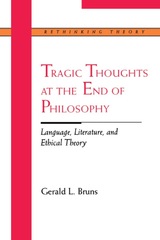
READERS
Browse our collection.
PUBLISHERS
See BiblioVault's publisher services.
STUDENT SERVICES
Files for college accessibility offices.
UChicago Accessibility Resources
home | accessibility | search | about | contact us
BiblioVault ® 2001 - 2024
The University of Chicago Press









